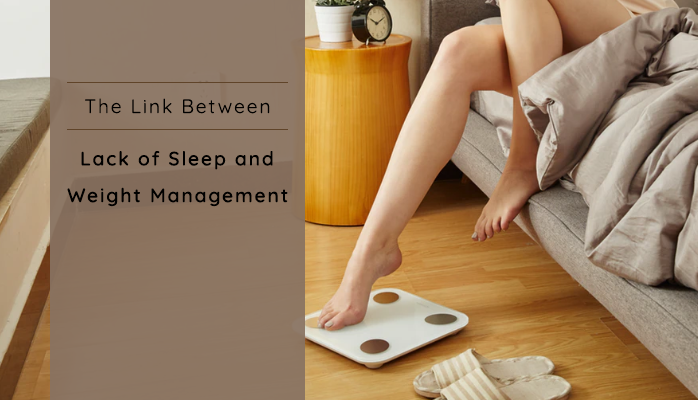Link Between Weight and Sleep
If you are trying to lose weight, or have historically struggled with managing your weight, pay attention to how much sleep you are getting. You should be getting at least 7 hours of sleep (if you are an adult), but you also might need more depending on your unique needs. When you get less than 7 hours of sleep, and thus become sleep deprived, you are likely to exhibit numerous weight-unfriendly behaviors. To boot, lack of sleep also affects your metabolism in ways you don’t want it too if you are trying to manage or lose weight.
The link between sleep deprivation and weight is well studied. What we know is that sleep deprivation:
- Triggers a cortisol spike, which tells your body to conserve energy (i.e., slow metabolism)
- Inhibits your body’s ability to produce insulin, which is integral in turning carbs/sugar in to energy or, in the case of lack of sleep, into fat
- Poor sleep can increase your appetite
- Sleep deprivation hampers your ability to make good weight-friendly choices
- Sleep deprivation hampers your ability to fight cravings
- People who are sleep deprived tend to eat more
So, if you are trying to lose weight or manage weight, pay attention! Let’s explore these topics in more detail.
Cortisol, Weight, and Sleep
Sleep deprivation causes a cortisol spike in your body. Cortisol is a stress hormone – in simple terms, the higher your cortisol levels, the higher your stress levels.
When your cortisol levels spike, it triggers your body to begin conserving energy as a survival mechanism. Conserving energy is simply another way of saying: hang on to fat. Obviously, if you are trying to lose weight this isn’t ideal.
Sleep Deprivation and Metabolism
Sleep deprivation hampers metabolism in important ways that makes losing or managing way more difficult.
The first is in relation to insulin. Insulin is an extremely important hormone for regulating weight – it decides what carbohydrates (sugars) get stored as fat and what carbohydrates get converted to energy.
Poor sleep can lead to insulin resistance [source] – about 30-40% [source]. This is a major problem for keeping off fat. Insulin resistance essentially means that your body has to produce more insulin to deal with sugar in your bloodstream. Excess insulin production tells your body to convert those sugars to fat instead of energy, and it also makes you hungrier. To put it another way, eating three sugar cubes while sleep deprived may cause the same insulin reaction as eating four sugar cubes while not sleep deprived.
Secondly, sleep may decrease your resting metabolism [source], but there is conflicting evidence on this. Your resting metabolism is the number of calories your body burns while completely at rest.
Sleep Deprivation and Appetite
A number of studies show that people who are sleep deprived report having an increased appetite [source, source]. This is most likely caused because of the impact sleep has on two critical hunger hormones:
- Ghrelin - a hormone that is released in the stomach and tells your brain how full you are
- Leptin - a hormone released from fat cells that suppresses hunger by signaling a sense of fullness in the brain
When your stomach is empty, ghrelin is high. When your stomach is full, ghrelin is low. When you are full, your leptin is high. When you are hungry, your leptin is low.
When you do not sleep, your body makes MORE ghrelin, as if your stomach were not full enough. When you do not sleep, your body also makes less leptin, leading to more hunger.
Sleep and Making Weight-Healthy Choices
It’s harder to make good, weight friendly choices when you are sleep deprived, period. When you are sleep deprived:
- Sleep deprivation can increase your affinity for foods that are high in calories [source]
- Sleep deprivation causes the reward centers in the brain to be more stimulated by food, making it harder to resist an extra bowl of ice cream [source]
- Sleep deprivation dulls activity in the frontal lobe of the brain, which is in charge of decision making and self-control [source]
- When you are sleep deprived, your fatigue and lack of energy makes is far less likely that you will get exercise
- Sleep deprivation also will affect the intensity of your workout – making it far less likely that you will work out as intensely as if you had good sleep [source]
Sleep disorders and other causes of sleep deprivation put you far greater risk for being overweight or obese. If you are struggling with sleep and also struggling with weight, please contact our sleep specialists. Start by taking this free online sleep test.


